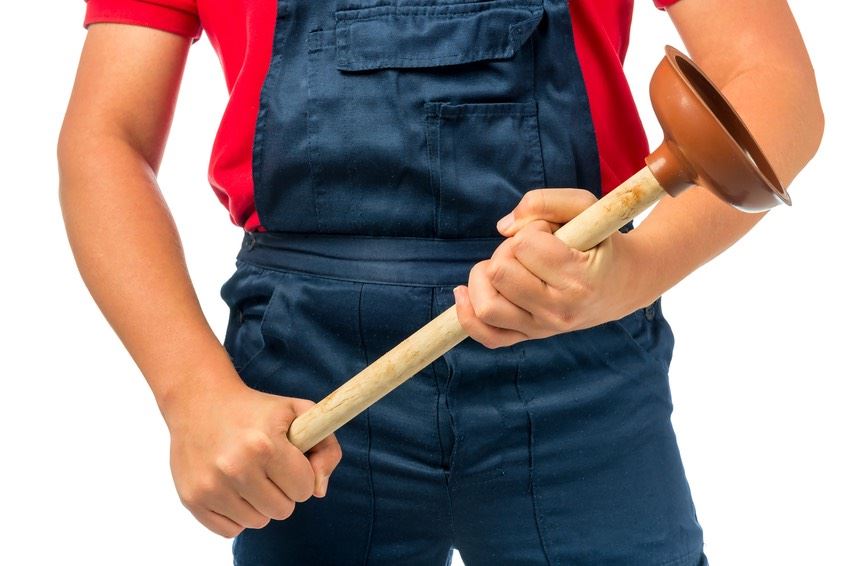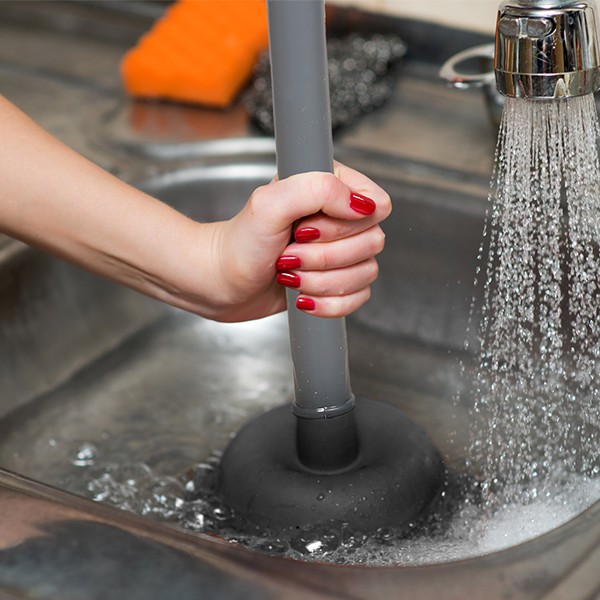Perfecting Plungers and Drain Cleaner: Professional Techniques
Perfecting Plungers and Drain Cleaner: Professional Techniques
Blog Article
How do you feel about How to Use a Plunger to Unclog a Toilet or Drain?

Intro
Proper maintenance of household drains pipes is essential for avoiding clogs and guaranteeing smooth water flow. One of the secret tools in every property owner's toolkit is the bettor, along with numerous drainpipe cleansers developed to deal with stubborn clogs effectively. This write-up explores just how to make use of bettors and drain cleaners effectively to maintain your drains pipes streaming freely.
Area 1: Recognizing Bettors
Kinds of Plungers
There are several kinds of bettors available, each created for different kinds of drains and obstructs. The most usual kinds consist of cup bettors, flange plungers, and accordion bettors.
Just How Plungers Work
Plungers work on the principle of developing stress and suction to dislodge blockages. When properly applied over a drain, they develop a vacuum cleaner that can take out debris or break up clogs.
Selecting the Right Plunger
Selecting the right bettor relies on the kind of drainpipe and the nature of the clog. Cup bettors are optimal for sinks and tubs, while flange bettors are better matched for bathrooms because of their style.
Typical Mistakes with Plungers
Staying clear of these blunders makes sure effective plunging: improper seal around the drain, insufficient pressure, and not clearing surrounding particles.
Area 2: Using Plungers Efficiently
Prep work
Before diving, ensure the plunger covers the drain totally and develops a limited seal. Clear any kind of visible debris around the drainpipe opening.
Strategy
Begin with gentle diving movements to construct suction. Boost pressure slowly, utilizing a steady rhythm. Repeat as essential till the drain gets rid of.
Repairing Tips
If diving doesn't function, attempt changing the seal, applying petroleum jelly for a better seal, or using a different type of bettor.
Section 3: Recognizing Drain Cleansers
Kinds Of Drain Cleansers
Drain pipes cleansers can be chemical or enzymatic. Chemical cleansers utilize solid chemicals to dissolve blockages, while enzymatic cleansers utilize all-natural enzymes to break down organic matter.
Exactly How Drain Cleaners Work
Chemical cleansers respond with blockages to liquify them, while chemical cleaners break down organic materials like hair and oil without damaging pipes.
Security Factors to consider
Constantly wear gloves and eye security when making use of chemical drainpipe cleaners. Make certain ample air flow and comply with maker instructions carefully.
Eco-Friendly Alternatives
Consider making use of vinegar and cooking soda or enzyme-based cleaners for eco-friendly alternatives that are much safer for pipelines and the atmosphere.
Area 4: Using Drain Cleaners Successfully
Application Techniques
Put chemical cleaners directly into the drain opening. Permit them to work for the suggested time before purging with hot water. Enzymatic cleansers should rest over night.
Preventative measures
Avoid blending different types of cleansers, as this can produce harmful fumes. Never use chemical cleaners in conjunction with a bettor, as splashing can happen.
Managing Persistent Clogs
For persistent obstructions, consider using a pipes snake or calling a specialist plumbing professional to prevent damage to pipelines.
Verdict
Finally, comprehending exactly how to use plungers and drainpipe cleaners efficiently is crucial for maintaining healthy and balanced pipes systems. By choosing the right devices and methods, property owners can deal with small obstructions and protect against significant pipes problems down the line.
How To Properly Use A Plumbing Snake To Clear Drains
When any drain clogs in our home arise, we tend to gravitate toward the plunger and little else. In cases where the plunger and its vacuum-created pressure are not able to clear clogs, many immediately move to harmful chemicals or simply call their plumber to fix the issue.
we’re happy to help with all drain cleaning needs and concerns. This includes informing you on a few other home remedies you may have at your disposal for minor to moderate clogs, one of which is the use of a plumbing snake. Many people have never used one of these before – let’s go over the steps to take when your drain clogs and you have a plumbing snake available.
Attempt Plunger Use
The first step here, as we noted above, should indeed be to grab your plunger when you notice a drain clog and attempt to resolve it this way. If you’re unsure how to use a particular type of plunger, our plumbers can answer any questions you have. If this doesn’t do the trick, however, you move on to the snake.
Locate And Prepare Snake
A plumbing snake is a metal or plastic device that’s generally about a quarter of an inch thick. It’s design with significant extensions, meant to reach down into your clogged drain and push the clog out. Snakes also contain drain augers that will latch onto and push stubborn blockages.
If your plunger doesn’t clear a clog, locate your snake and bring it to the drain in question. We also recommend keeping a bucket nearby to collect the clog once you pull it out, plus we’d advise wearing goggles and possibly protective gloves.
Feed Snake
Once you’re ready to go, feed the snake slowly down the drain, using the crank device it comes with to keep it moving until it finds the clog. Once this happens, much of the clog will be latched onto the coil so you can pull it out, while the rest will simply break up and flow downward.
Detach Debris
Remove the snake slowly from the drain, and once you’ve done so, pick off any debris that’s stuck to the coil. This is another area where wearing gloves is a must.
Flush Drain
Finally, take a few minutes to ensure the snake has done its job correctly. If you’ve been using it on a toilet, flush the toilet a couple times and make sure everything flows well. If you’ve used it on a different drain, flush it with some room temperature water.
https://www.mybuddytheplumber.com/blog/how-to-properly-use-a-plumbing-snake-to-clear-drains/

Application Techniques
Put chemical cleaners directly into the drain opening. Permit them to work for the suggested time before purging with hot water. Enzymatic cleansers should rest over night.
Preventative measures
Avoid blending different types of cleansers, as this can produce harmful fumes. Never use chemical cleaners in conjunction with a bettor, as splashing can happen.
Managing Persistent Clogs
For persistent obstructions, consider using a pipes snake or calling a specialist plumbing professional to prevent damage to pipelines.
Verdict
Finally, comprehending exactly how to use plungers and drainpipe cleaners efficiently is crucial for maintaining healthy and balanced pipes systems. By choosing the right devices and methods, property owners can deal with small obstructions and protect against significant pipes problems down the line.
How To Properly Use A Plumbing Snake To Clear Drains
When any drain clogs in our home arise, we tend to gravitate toward the plunger and little else. In cases where the plunger and its vacuum-created pressure are not able to clear clogs, many immediately move to harmful chemicals or simply call their plumber to fix the issue.
we’re happy to help with all drain cleaning needs and concerns. This includes informing you on a few other home remedies you may have at your disposal for minor to moderate clogs, one of which is the use of a plumbing snake. Many people have never used one of these before – let’s go over the steps to take when your drain clogs and you have a plumbing snake available.
Attempt Plunger Use
The first step here, as we noted above, should indeed be to grab your plunger when you notice a drain clog and attempt to resolve it this way. If you’re unsure how to use a particular type of plunger, our plumbers can answer any questions you have. If this doesn’t do the trick, however, you move on to the snake.
Locate And Prepare Snake
A plumbing snake is a metal or plastic device that’s generally about a quarter of an inch thick. It’s design with significant extensions, meant to reach down into your clogged drain and push the clog out. Snakes also contain drain augers that will latch onto and push stubborn blockages.
If your plunger doesn’t clear a clog, locate your snake and bring it to the drain in question. We also recommend keeping a bucket nearby to collect the clog once you pull it out, plus we’d advise wearing goggles and possibly protective gloves.
Feed Snake
Once you’re ready to go, feed the snake slowly down the drain, using the crank device it comes with to keep it moving until it finds the clog. Once this happens, much of the clog will be latched onto the coil so you can pull it out, while the rest will simply break up and flow downward.
Detach Debris
Remove the snake slowly from the drain, and once you’ve done so, pick off any debris that’s stuck to the coil. This is another area where wearing gloves is a must.
Flush Drain
Finally, take a few minutes to ensure the snake has done its job correctly. If you’ve been using it on a toilet, flush the toilet a couple times and make sure everything flows well. If you’ve used it on a different drain, flush it with some room temperature water.
https://www.mybuddytheplumber.com/blog/how-to-properly-use-a-plumbing-snake-to-clear-drains/

I'm just very occupied with Here's How to Correctly Use a Toilet Plunger and I really hope you appreciated the page. Sharing is good. Helping others is fun. I praise you for your time. Return soon.
Recurring Service Plans Report this page